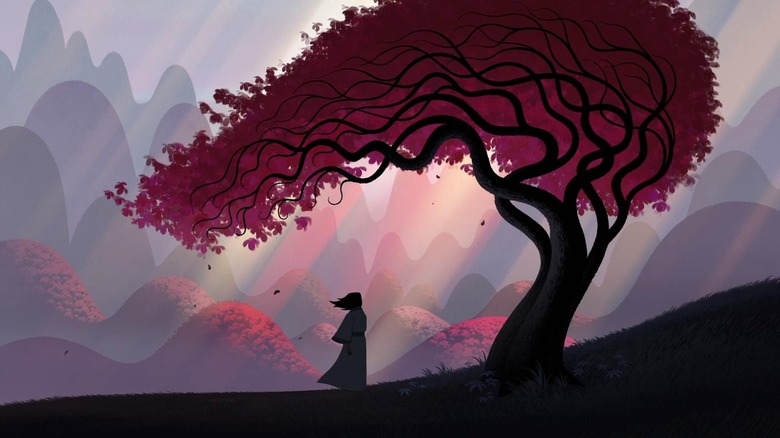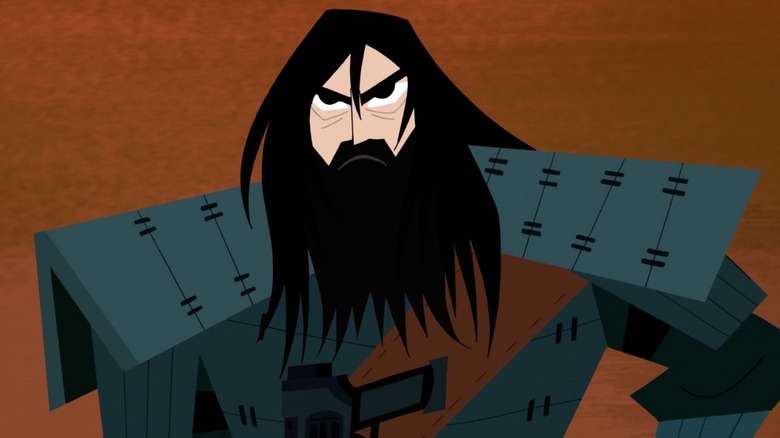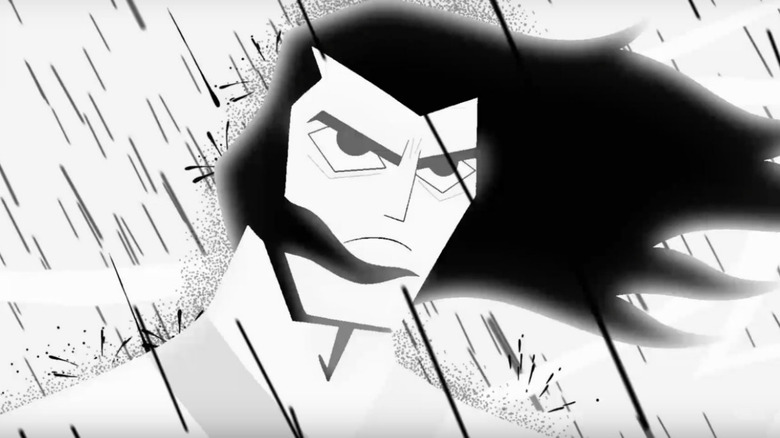Genndy Tartakovsky Never Had An Ending In Mind For The Original Samurai Jack
When making a show that feels as timeless as "Samurai Jack," a conclusion is not something you have in mind when writing episodes. Genndy Tartakovsky was not allowed to follow a serialized format, with the story of one episode having almost nothing to do with another. Unfortunately, that leads to problems in creating a cohesive story with character development. In the case of "Samurai Jack," solving the lack of a throughline was found in the title character's unwavering will and stoic nature. The initial four-season run felt like the old episodic adventures of television series past. While Jack never truly inched closer or further from his goal, there was entertainment to be had in Tartakovsky's world building and incredibly animated fights.
The only problem with lacking a definitive conclusion is the story "Samurai Jack" had set up from the beginning. Jack's need to return to the past stems from a duty he has to protect his people from the demon Aku, who sent him into the future to begin with. Would Jack's people be doomed to eternal suffering due to the lack of an ending in the original run of the series? Thankfully not, as a revived fifth season 13 years after its initial run provided a definitive conclusion. Before the Adult Swim revival, though, Tartakovsky didn't have an ending in mind.
An origin that required a conclusion
Genndy Tartakovsky spoke to The Verge about handling the first ending of Samurai Jack back in 2004, where both he and the studio had an unspoken understanding about being done with the series for the time being. Tartakovsky also acknowledged the dark undertones of the story and the implications of not having a conclusion:
"Yeah, even initially, because we made such a big deal about Jack's origin, and all these people in his life that were left to suffer and die, basically. He had to come back at some point if he had a hope of finishing his quest, and I always wanted to finish it. But at the end of the fourth season, we were all burnt out. The network didn't know what they wanted to do, I didn't know what I wanted to do. And then we were getting 'Star Wars' handed to us. I realized, 'I don't want to rush out an ending.' I didn't even know what the ending was back then. So we decided just quietly to finish the fourth season."
Tartakovsky's patience with his story saved "Samurai Jack" from a forced ending in its initial run. Not having an end in mind is understandable given the network constraints the team behind the show had to deal with. Moreover, the patience paid off when it came time to tell the suitable conclusion Tartakovsky wanted for the character since he first conceived the concept in the early 2000s.
The Samurai Jack film that almost was
Genndy Tartakovsky eventually come up with an ending to "Samurai Jack," speaking about potentially turning this conclusion for the character into a movie:
"It [the ending] popped up first, probably a couple of years after I finished the show. I realized, 'Oh, this is the way I would want to do it.' There was all this various interest in doing a Samurai Jack movie, where I would reinvent the show and finish it in the same movie. In the movies, especially back then, they wanted a completion. The same core idea I had then is what we're doing now."
"Samurai Jack" wouldn't receive the film treatment but instead got the 10-episode final season that aired on Adult Swim in 2017. This option allowed not only for fans to get reacquainted with the character of Jack, but also gave the story more room to breathe compared to the runtime of a feature film. The ending saw Jack finally return to his time in the past, albeit at a tremendous personal cost. The conclusion of the series was epic in scale and finally allowed Jack to overcome the demon Aku. Tartakovsky overcame his own creative struggles and gave Jack the definitive ending he deserved.


